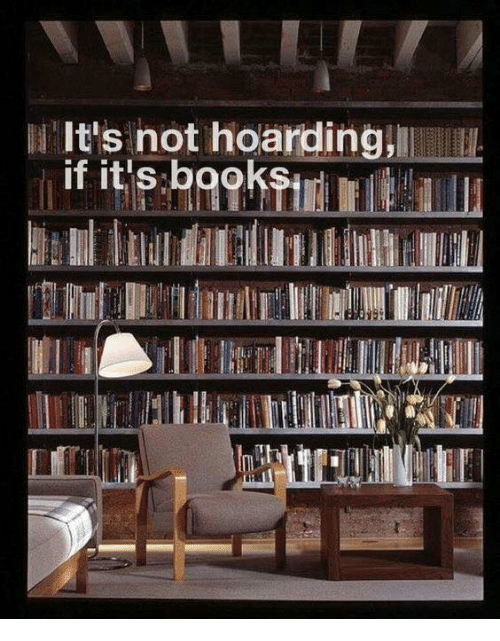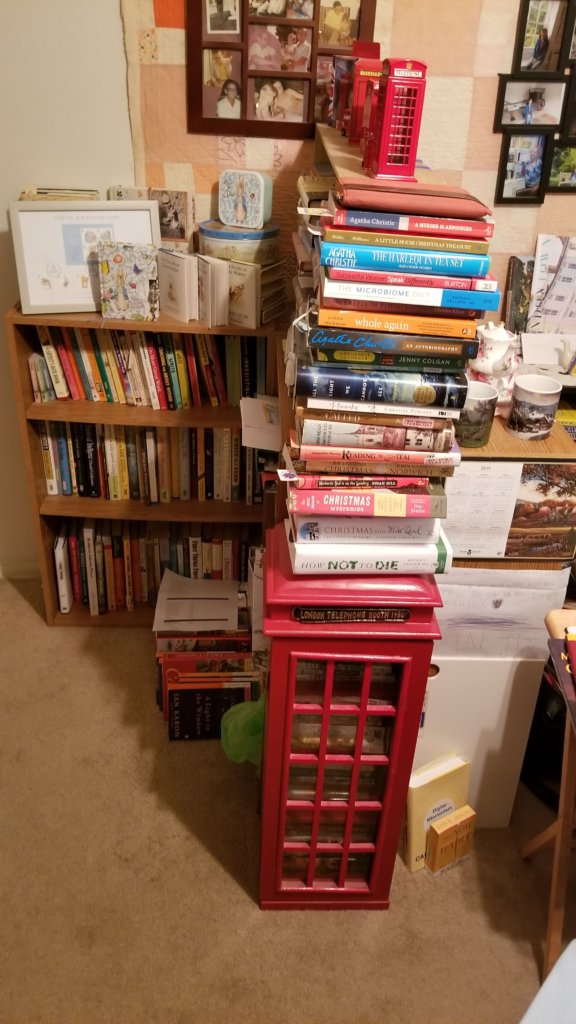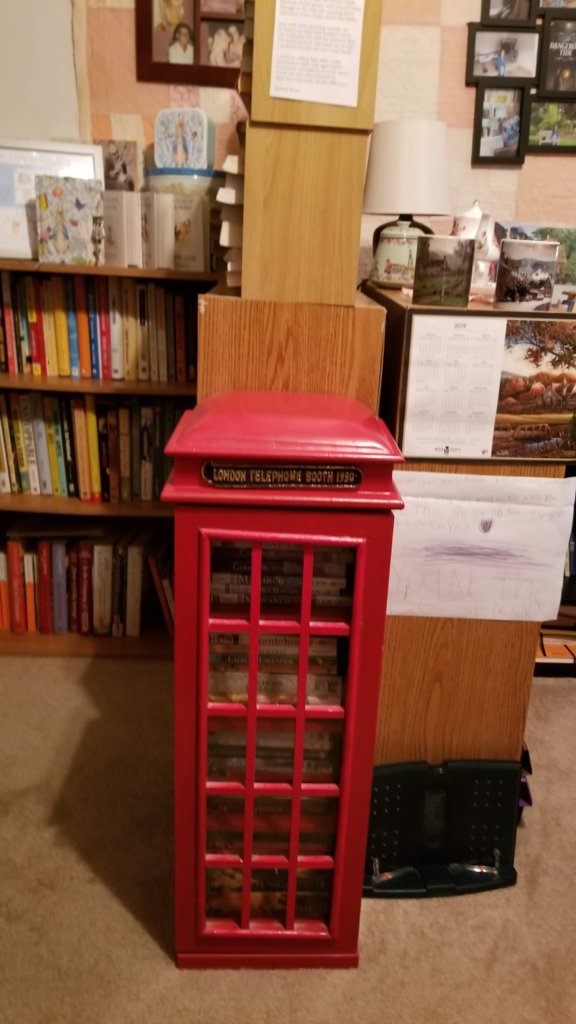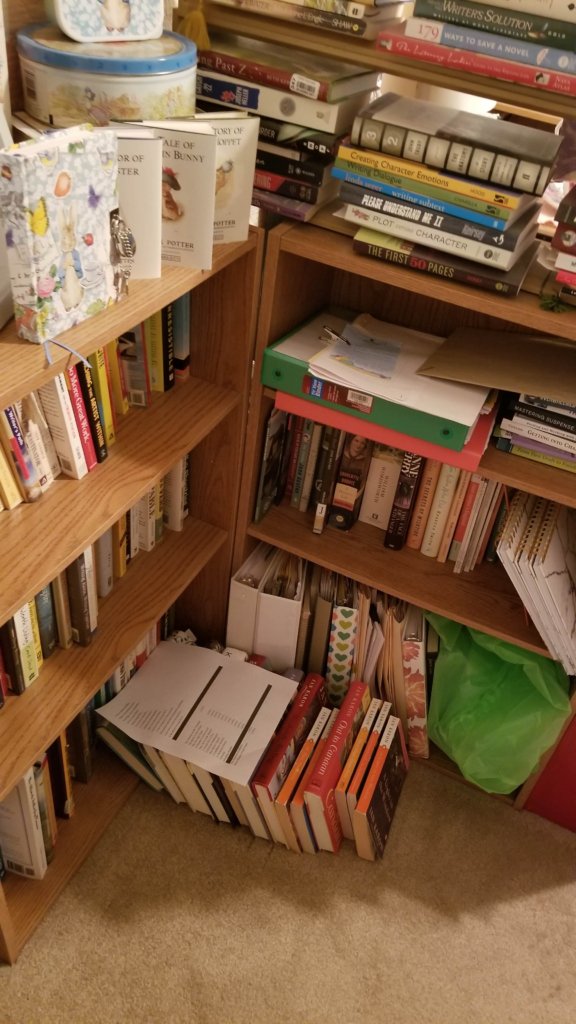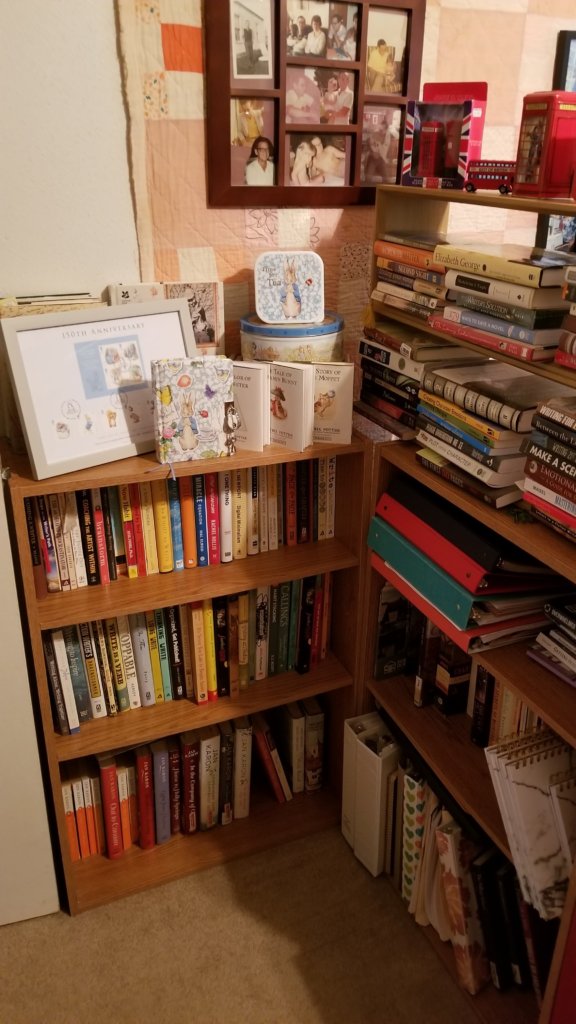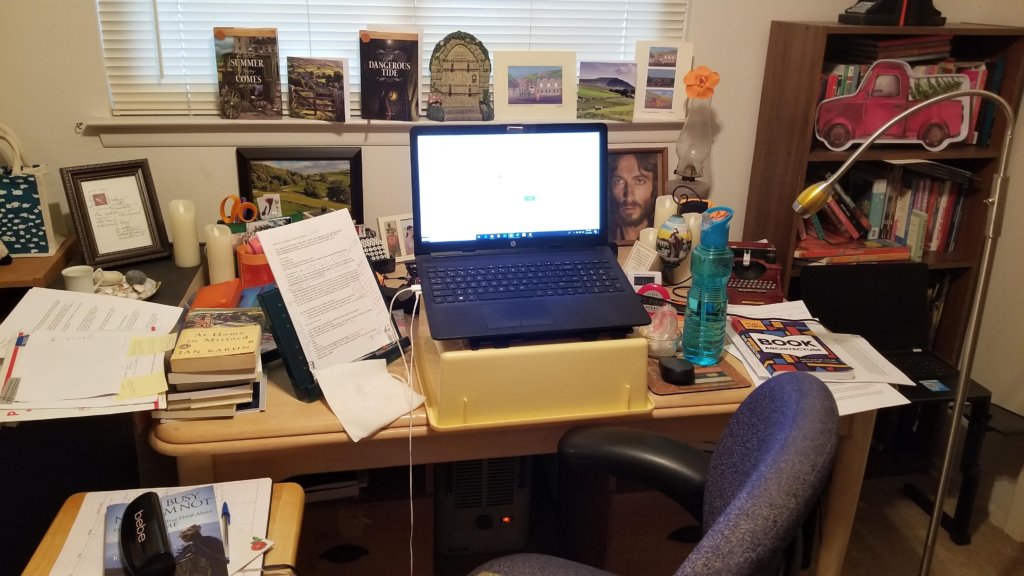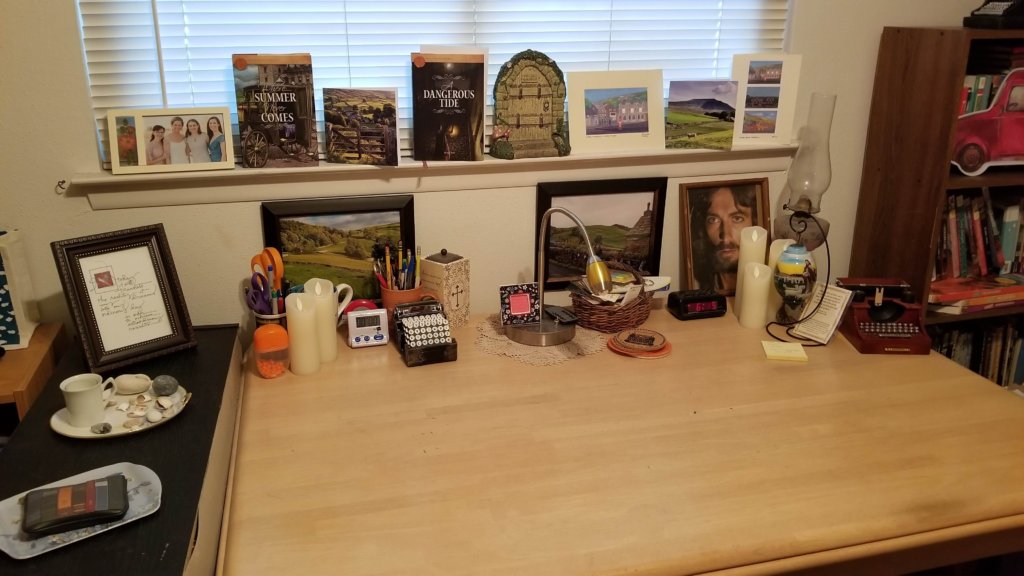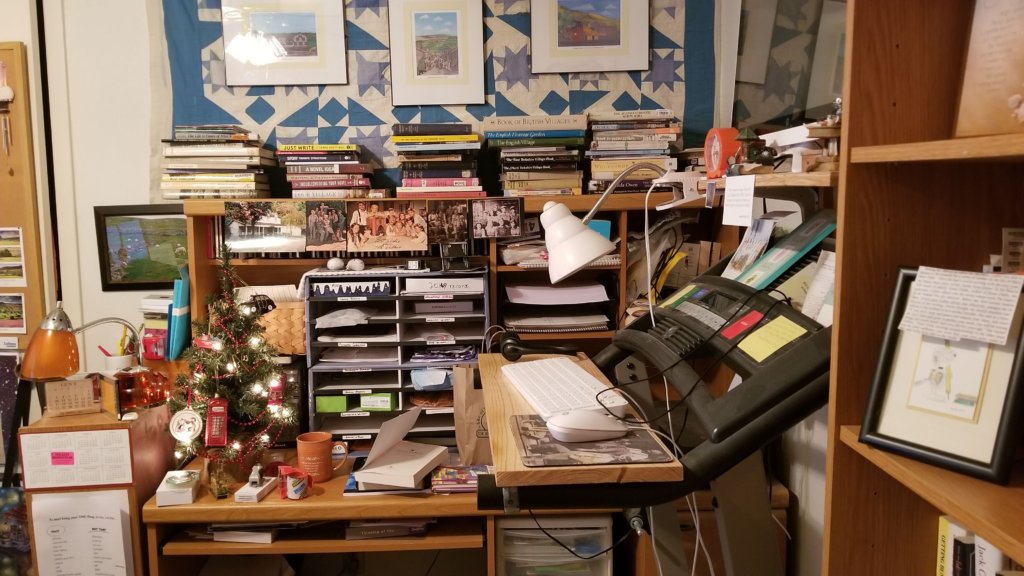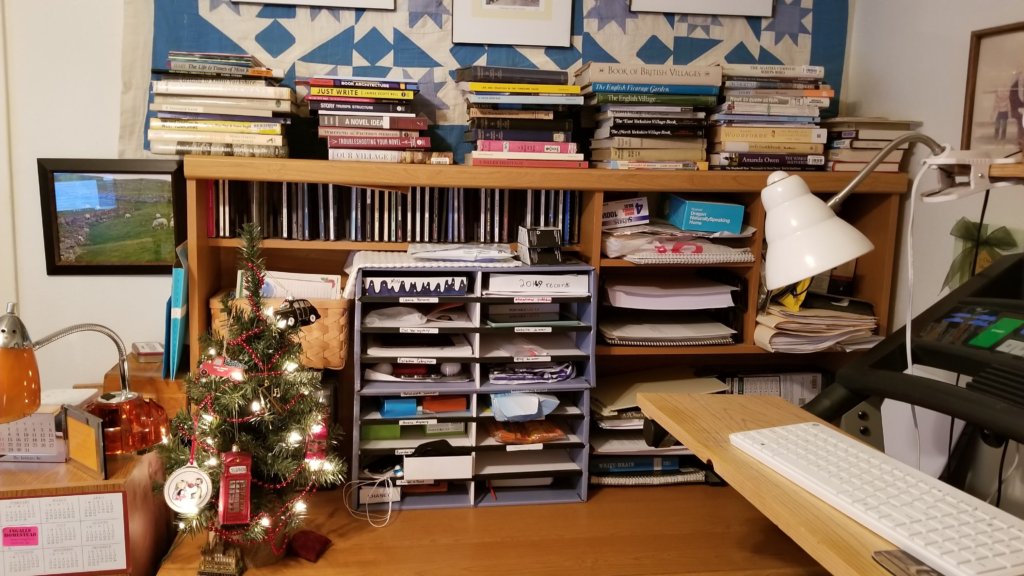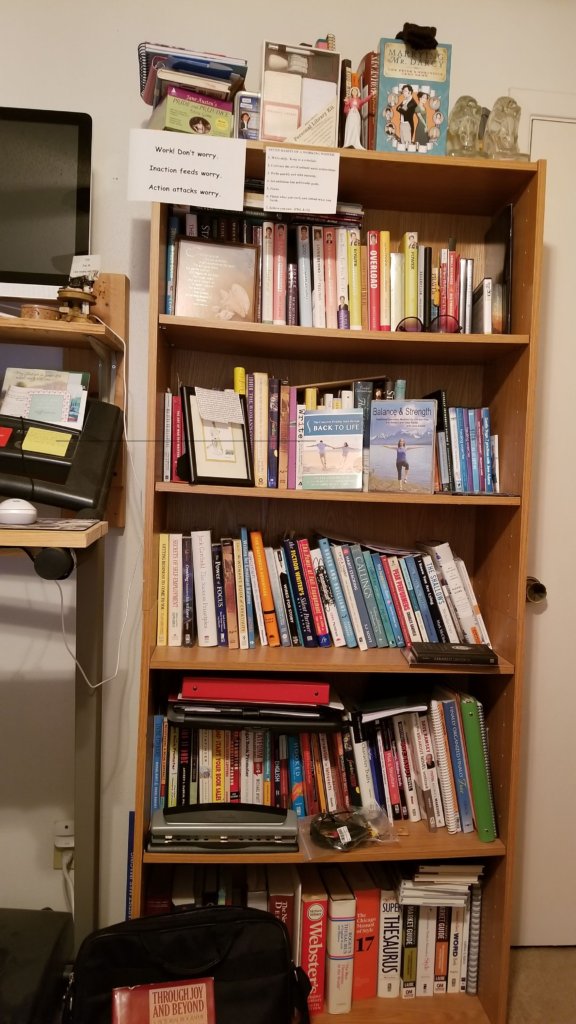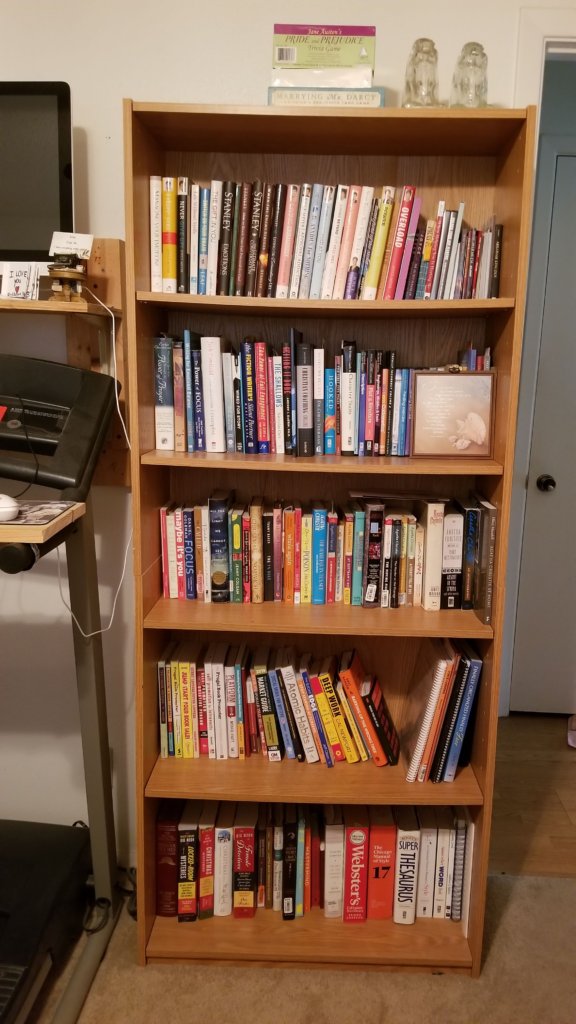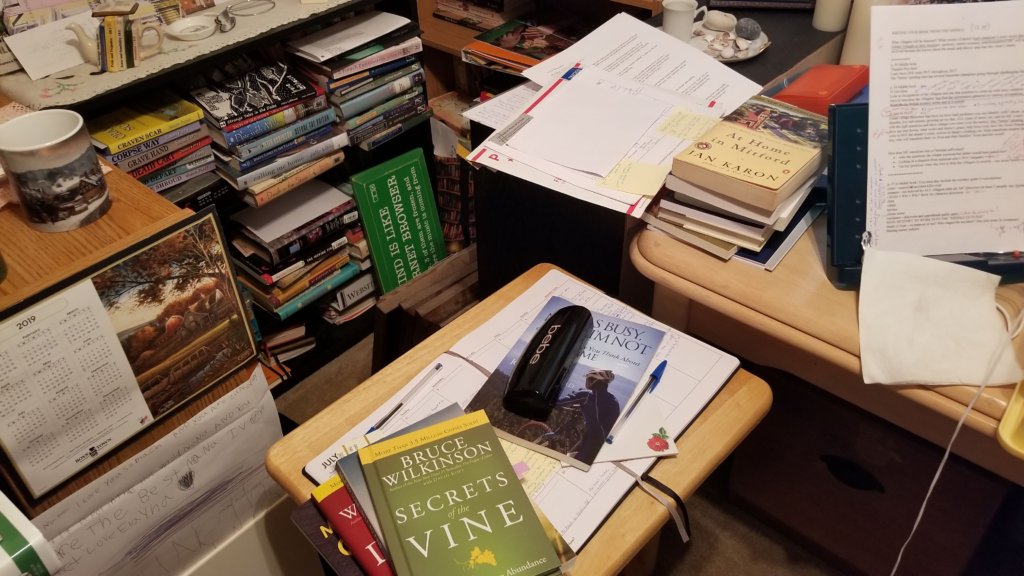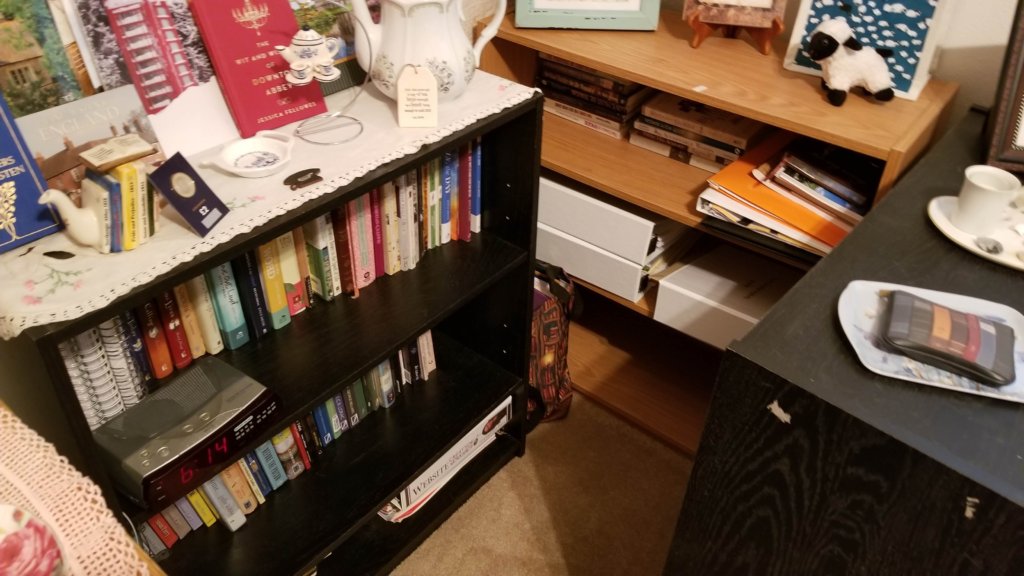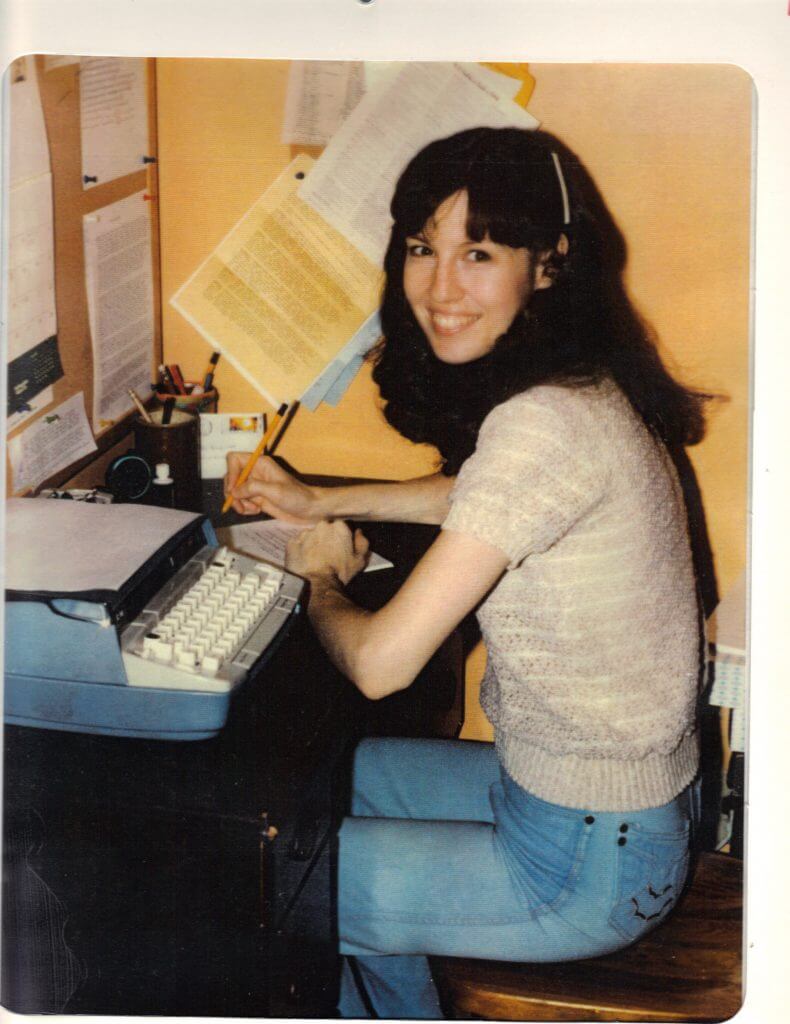 We are invited to get into the yoke with Jesus to do the writing God has called us to do. (Matthew 11:28-30) This way of working promises ease and rest for our souls. However, writing with ease and a light burden was not my writing experience for 35 years (not since writing changed from hobby-writing in a closet painted orange to a means of keeping a roof over our heads).
We are invited to get into the yoke with Jesus to do the writing God has called us to do. (Matthew 11:28-30) This way of working promises ease and rest for our souls. However, writing with ease and a light burden was not my writing experience for 35 years (not since writing changed from hobby-writing in a closet painted orange to a means of keeping a roof over our heads).
I had my time-tested, never-fail method to meet deadlines (claim Bible verses about strength, grit teeth, white knuckle it and “just do it!” ) However, almost a year ago, my method stopped working. There were many factors. Even before dealing with Covid, life had become one thing piled on top of another to the point that, unless I discovered a much easier writing method, I would need to quit. Retire. Pack it in.
I couldn’t stand the idea. I loved the project I was working on, but something would have to change. One morning I was reading some familiar verses when they suddenly took on new meaning.
Writing Made Easy
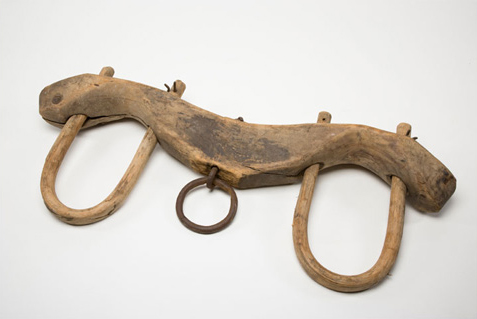 “Come to Me, all who are weary and heavily laden, and I will give you rest. Take My yoke upon you and learn from Me, for I am gentle and humble in heart, and you will find rest for your souls. For MY yoke is easy to bear, and My burden is light.” (Matthew 11:28-30)
“Come to Me, all who are weary and heavily laden, and I will give you rest. Take My yoke upon you and learn from Me, for I am gentle and humble in heart, and you will find rest for your souls. For MY yoke is easy to bear, and My burden is light.” (Matthew 11:28-30)
If His yoke was easy to carry, then whose heavy yoke was I in? I needed a new working style. Could I manage to switch yokes? I needed to learn more about yokes.
Equally or Unequally Yoked?
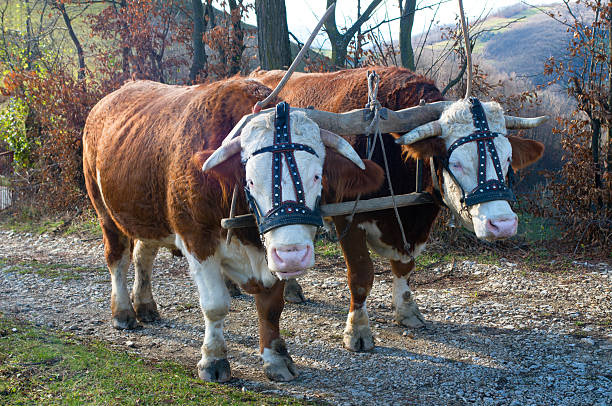
Farmers know that two animals yoked together must be suited to work in tandem. If one is big and stronger than the other, injury or failure is certain. Deuteronomy 22:10 says, “Thou shalt not plow with an ox and an ass together.” They are different both in strength and temperament.
So, at first glance, the invitation to get into the yoke with Jesus seems unworkable. None of us imagines that we are equally powerful! Actually, Jesus had in mind a different kind of yoke. They were hand-carved to fit the animals perfectly so the yoke didn’t rub and cause irritation, no matter how different the animals were in size or strength.
 So, in Jerusalem at the time Jesus was speaking, a yoke often did join two unequal animals for a specific purpose; one was older or stronger or wiser, and the other was young and inexperienced. The animals were yoked together so that the more experienced animal could teach the younger, weaker animal how to do the work without strain, injury and being burdened down. (A perfect description of Matt. 11:28-30.)
So, in Jerusalem at the time Jesus was speaking, a yoke often did join two unequal animals for a specific purpose; one was older or stronger or wiser, and the other was young and inexperienced. The animals were yoked together so that the more experienced animal could teach the younger, weaker animal how to do the work without strain, injury and being burdened down. (A perfect description of Matt. 11:28-30.)
So how would that work for my writing? Could I learn to “write in the yoke” for the rest of my career? These promises gave me hope: “I will give you rest…you will find rest for your souls… my yoke is easy, and my burden is light.”
So, I have been experimenting with a writing method based on those verses. Could I write without stress and pressure and drama, but still have a peaceful rested soul?Happily, I am learning that the answer can be yes.
Types of Days in the Yoke
For me, writing in the yoke means responding to the Lord’s gentle tug or slight inner pressure to get moving—or to stop. This means writing at the Lord’s pace, because He knows what schedule works best for my health and writing.
There is a learning curve to this. I have three distinct types of “days in the yoke.” Some days my “stubborn donkey” wants to procrastinate, ignoring the tug to get writing. Resisting the gentle pull, I sometimes dig my feet in with determination. I write either with reluctance or downright resistance.
Other days my donkey over-reacts in the opposite direction. I am behind schedule, so letting the bigger animal set the pace feels too risky. I worry that the gentle steady pace can’t possibly produce the words on time! So I try to hurry Him along, push and strain, and check my watch and word count continuously.
Glorious Writing in the Yoke
Thankfully, there is a third type of day, which happens more frequently the longer you practice. These I call the Glorious Writing Days, when I get in the yoke early in the day, stay in it, and start and stop when I feel the gentle tugs and nudges. I don’t clock watch, and I don’t count words till the end of the day. Amazingly, I produce more writing (often lots of it!) but with no ill effects of physical pain or emotional exhaustion. I even quit by 5:00, something I hadn’t done in years! It produces a satisfying, contented tired feeling from being productive without hurting myself.
My experiment with “writing in the yoke” seems to be working. Slowly but surely, I am transforming from a hard-working, burned-out writer to a productive writer who can work with ease. I had prayed for years about improving my health and stamina so I would never have to retire simply because I couldn’t physically do the job anymore. Becoming an “easy writer” appears to be a very big piece of that answer.
[First published August 23, 2020 on the ACFW National website]
 I woke up feeling sick today, and it is my own fault. I ate both gluten and sugar yesterday, and a lot of it, which is a no-no if I want to feel well.
I woke up feeling sick today, and it is my own fault. I ate both gluten and sugar yesterday, and a lot of it, which is a no-no if I want to feel well. Today, I’m going to show you the little “British touches” in my cottage that I love and will miss back in Texas: the architecture (crooked beams above the windows and slabs of stone above the fireplace and door), the skeleton key lock and letter box (the “plop” of the village magazine landing on the mat always takes me by surprise), the little egg cups and egg timer, my teapot and breadbox, my fireplace, and British commercials! It’s the little things that I love the most.
Today, I’m going to show you the little “British touches” in my cottage that I love and will miss back in Texas: the architecture (crooked beams above the windows and slabs of stone above the fireplace and door), the skeleton key lock and letter box (the “plop” of the village magazine landing on the mat always takes me by surprise), the little egg cups and egg timer, my teapot and breadbox, my fireplace, and British commercials! It’s the little things that I love the most.

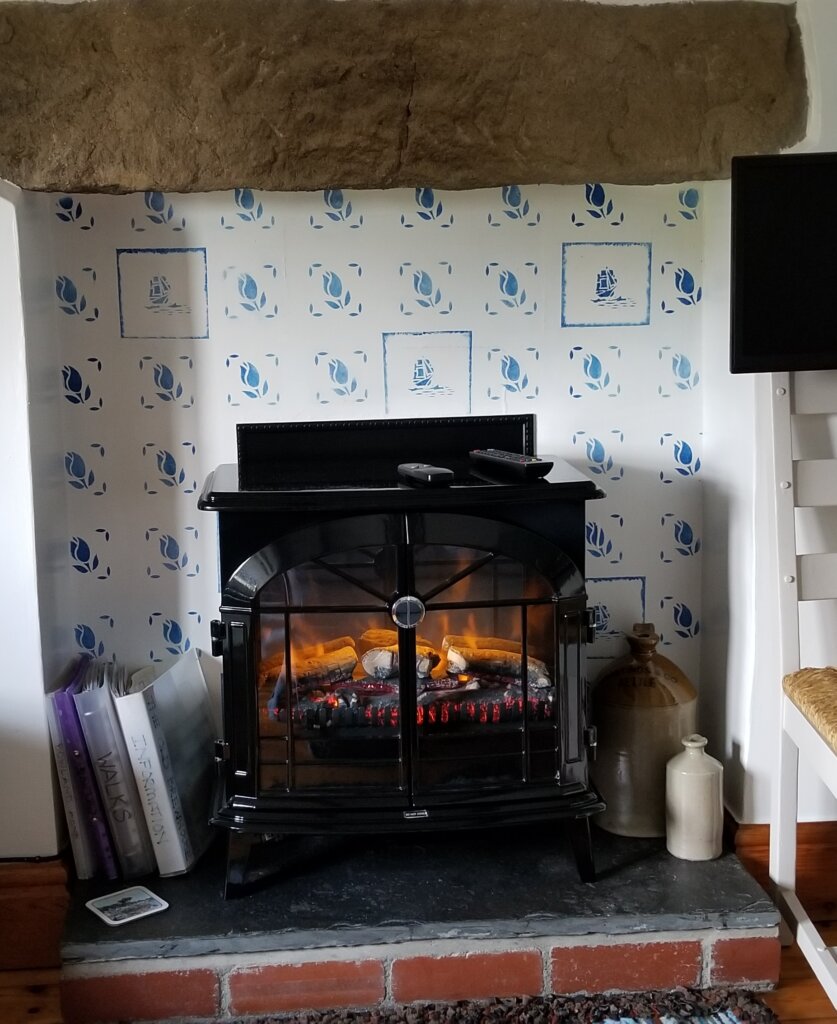
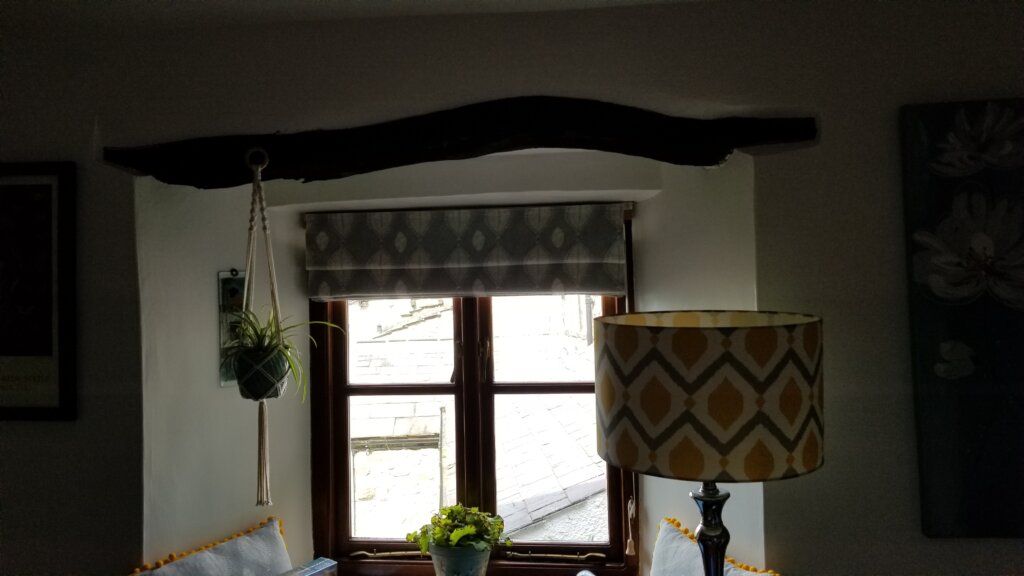




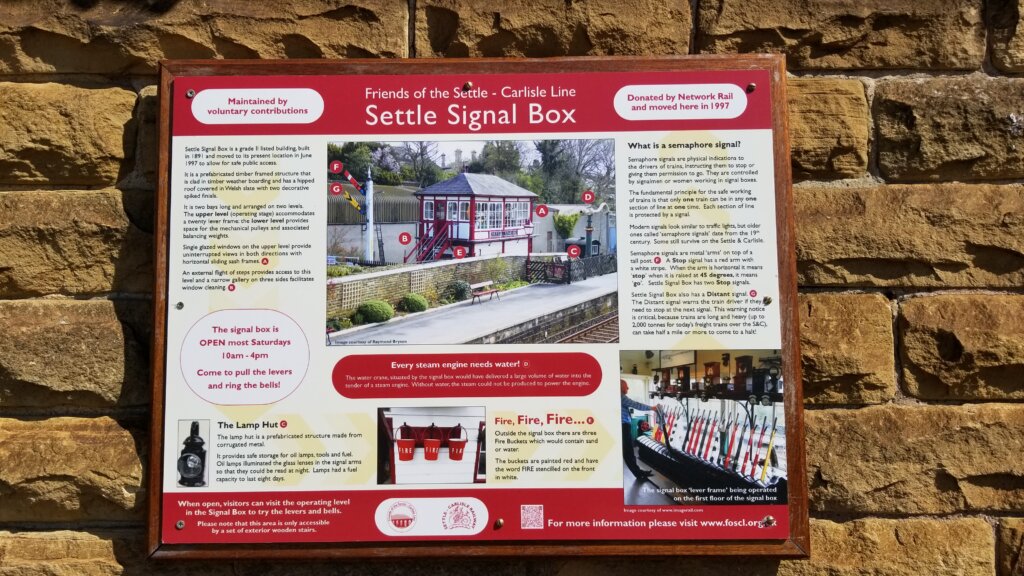




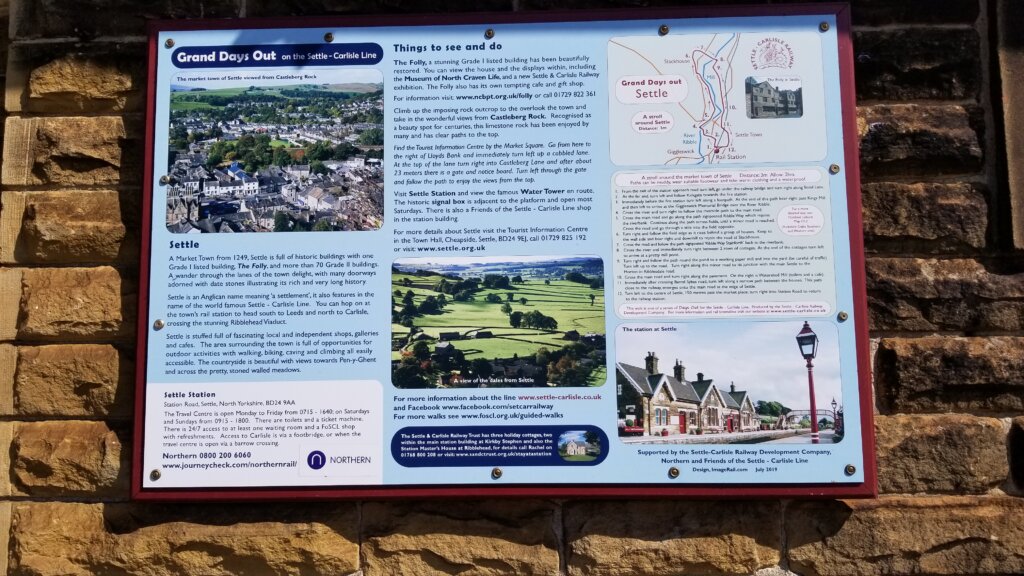
 Despite no rain in the forecast for two days, it feels like time to settle in today and do some solid writing. (But yes, I’ll take “walk breaks” today.)
Despite no rain in the forecast for two days, it feels like time to settle in today and do some solid writing. (But yes, I’ll take “walk breaks” today.) 
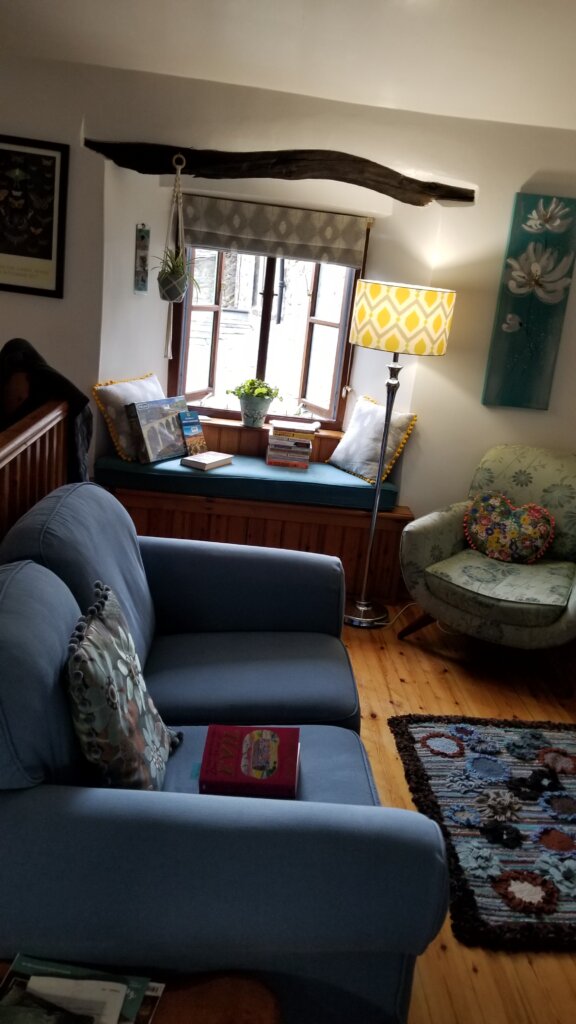

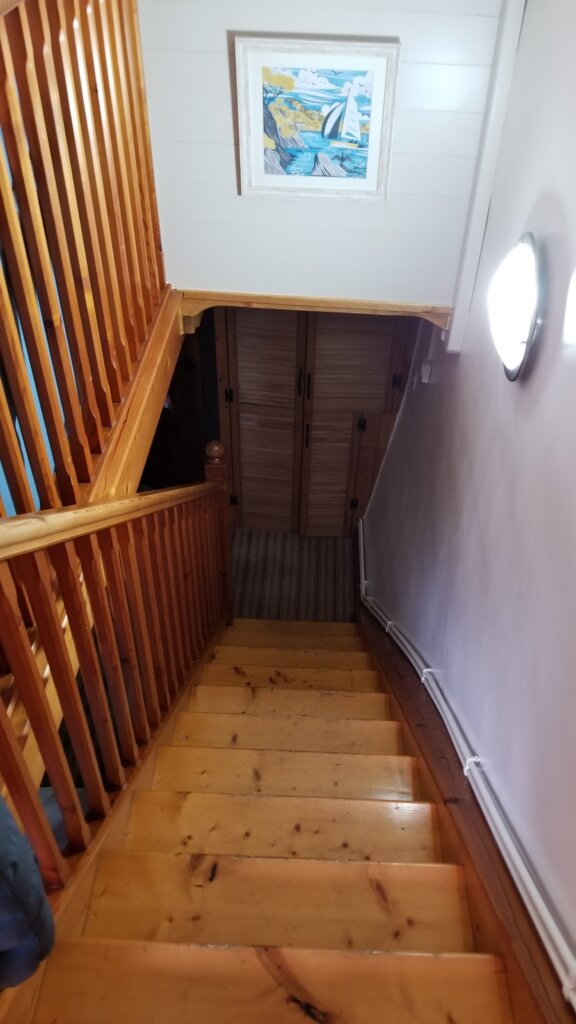
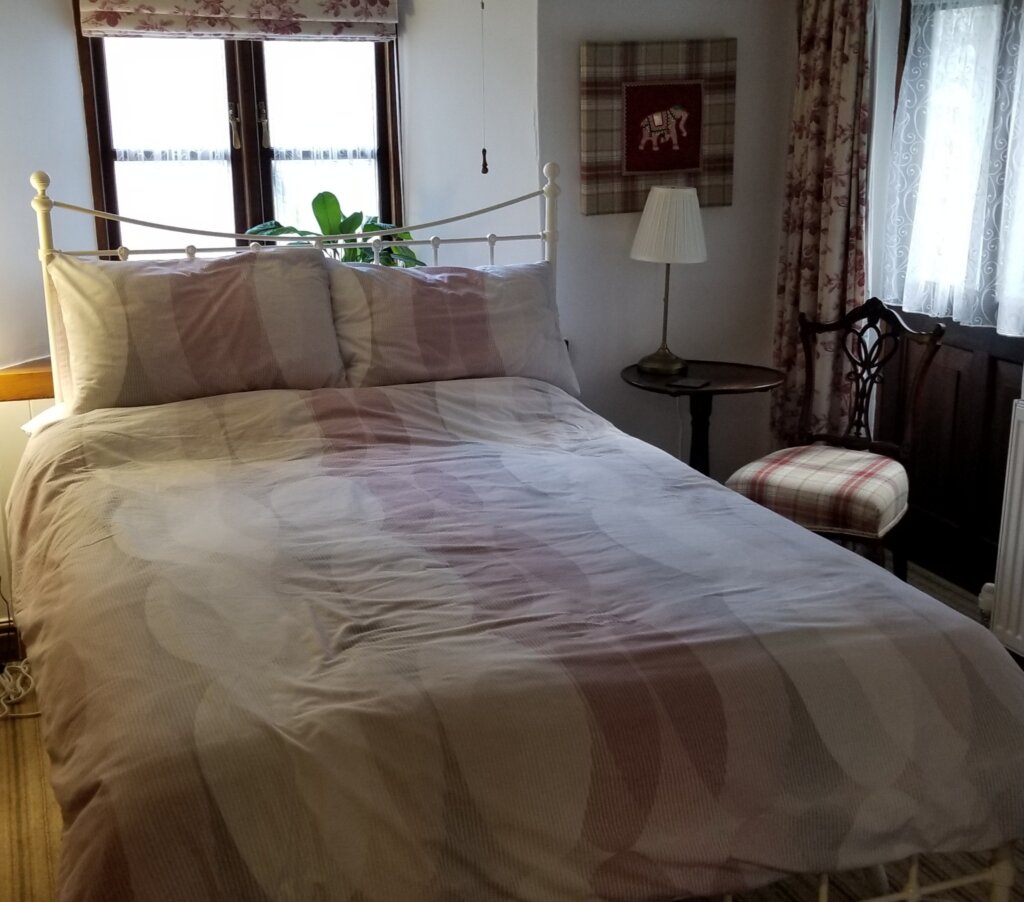
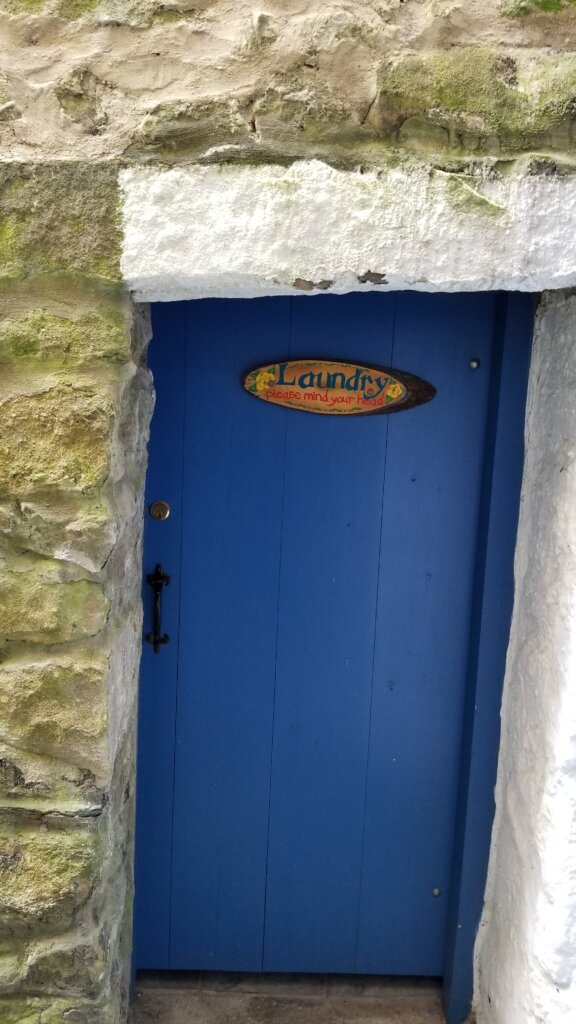
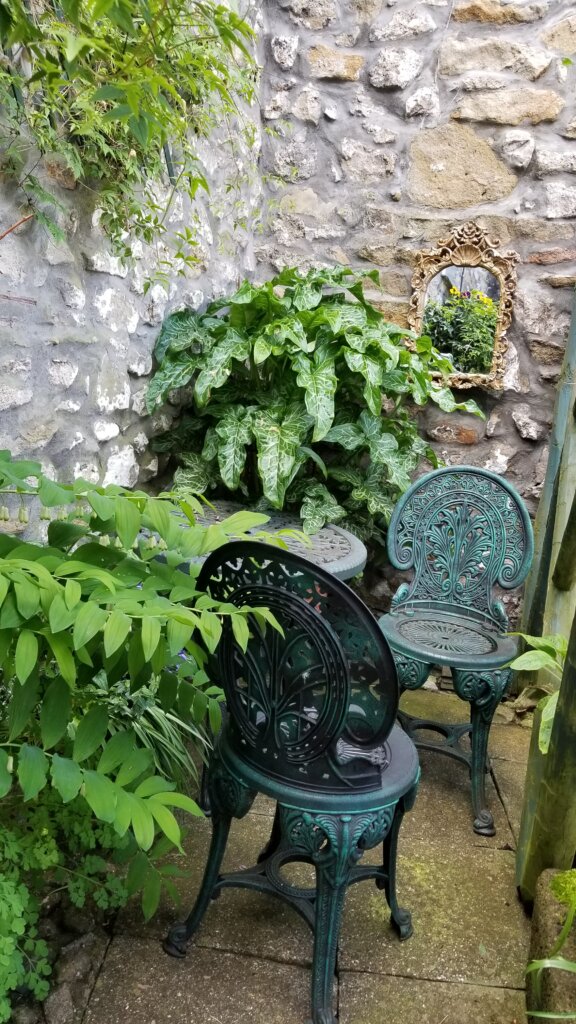
 Day 3: my walk with Julia…
Day 3: my walk with Julia…
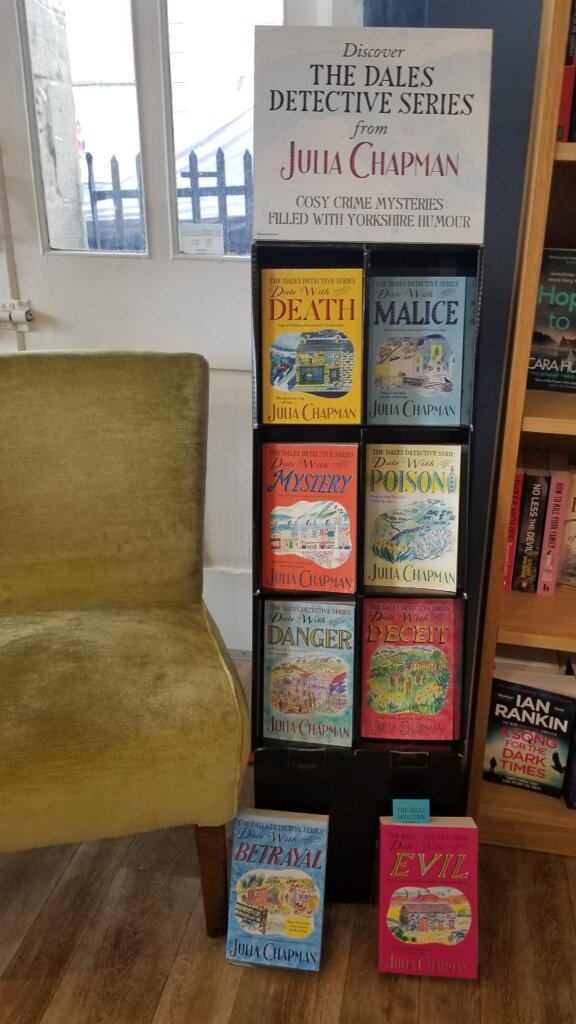
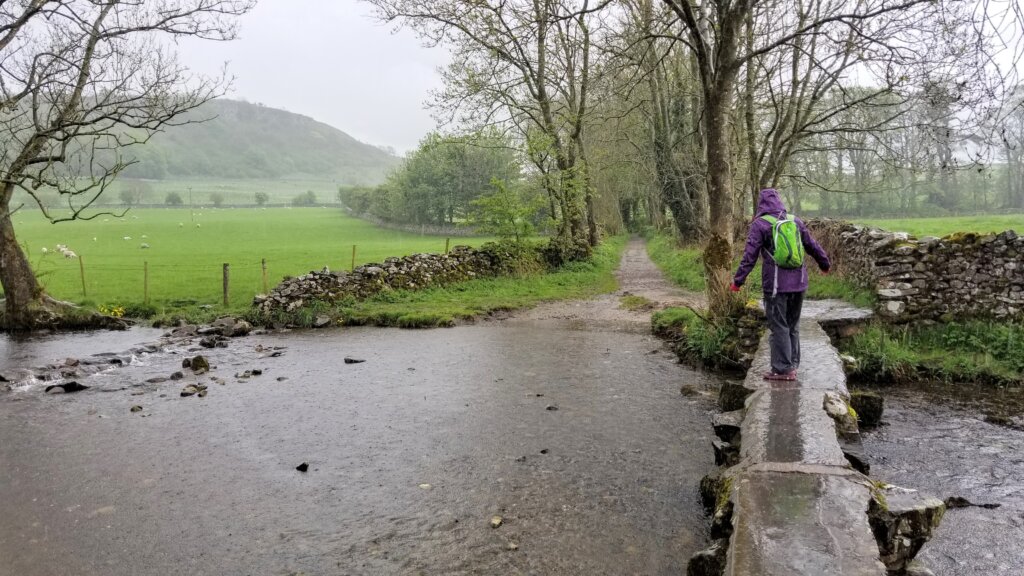
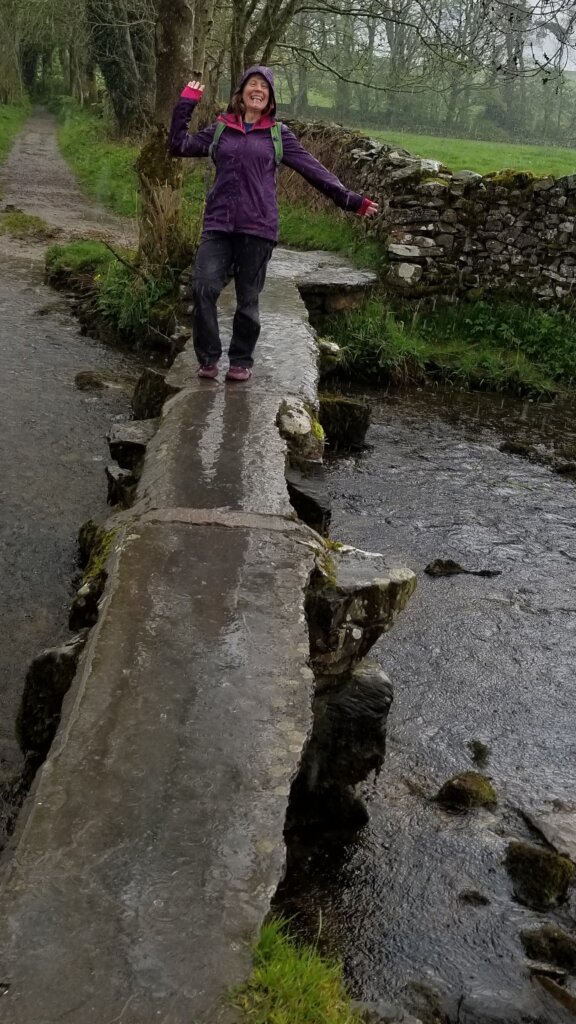





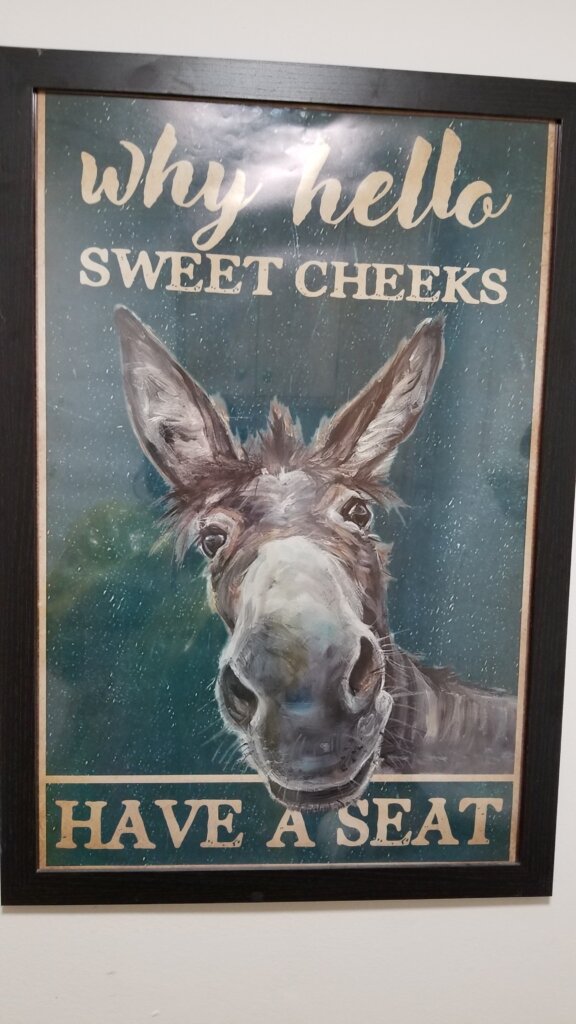

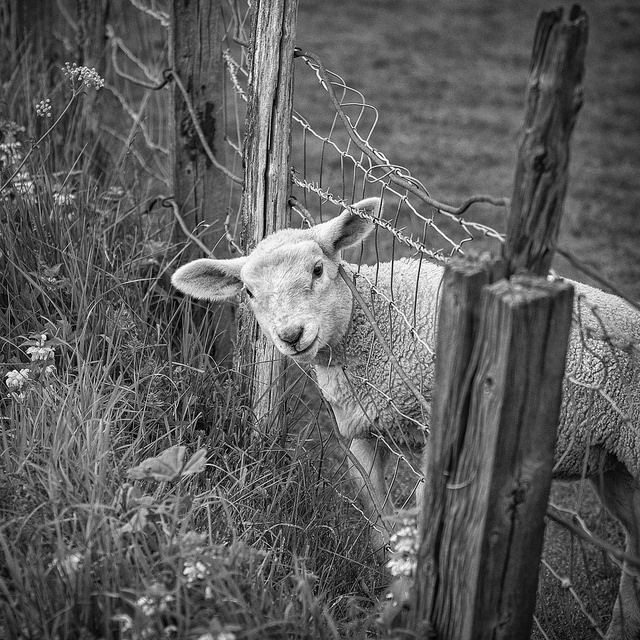


 “Come to Me, all who are weary and heavily laden, and I will give you rest. Take My yoke upon you and learn from Me, for I am gentle and humble in heart, and you will find rest for your souls. For
“Come to Me, all who are weary and heavily laden, and I will give you rest. Take My yoke upon you and learn from Me, for I am gentle and humble in heart, and you will find rest for your souls. For 
 So, in
So, in 
